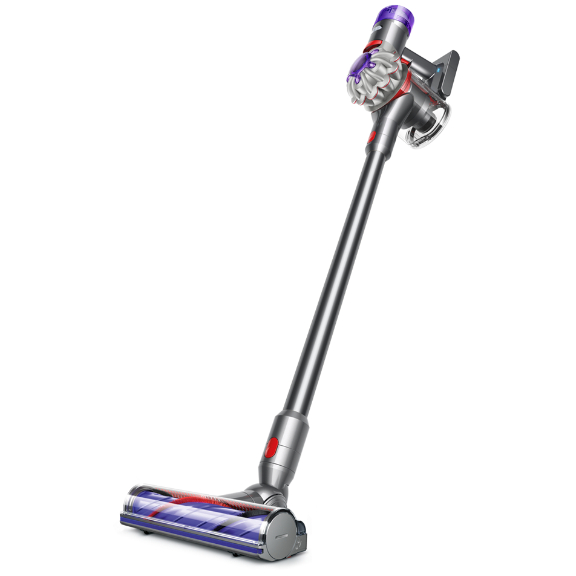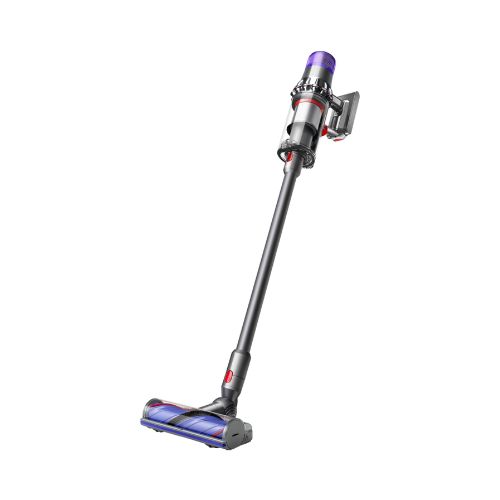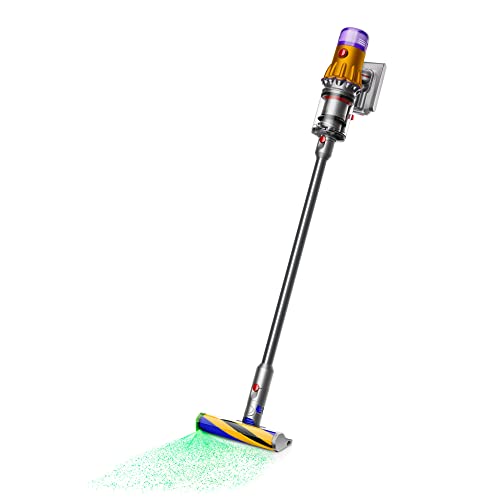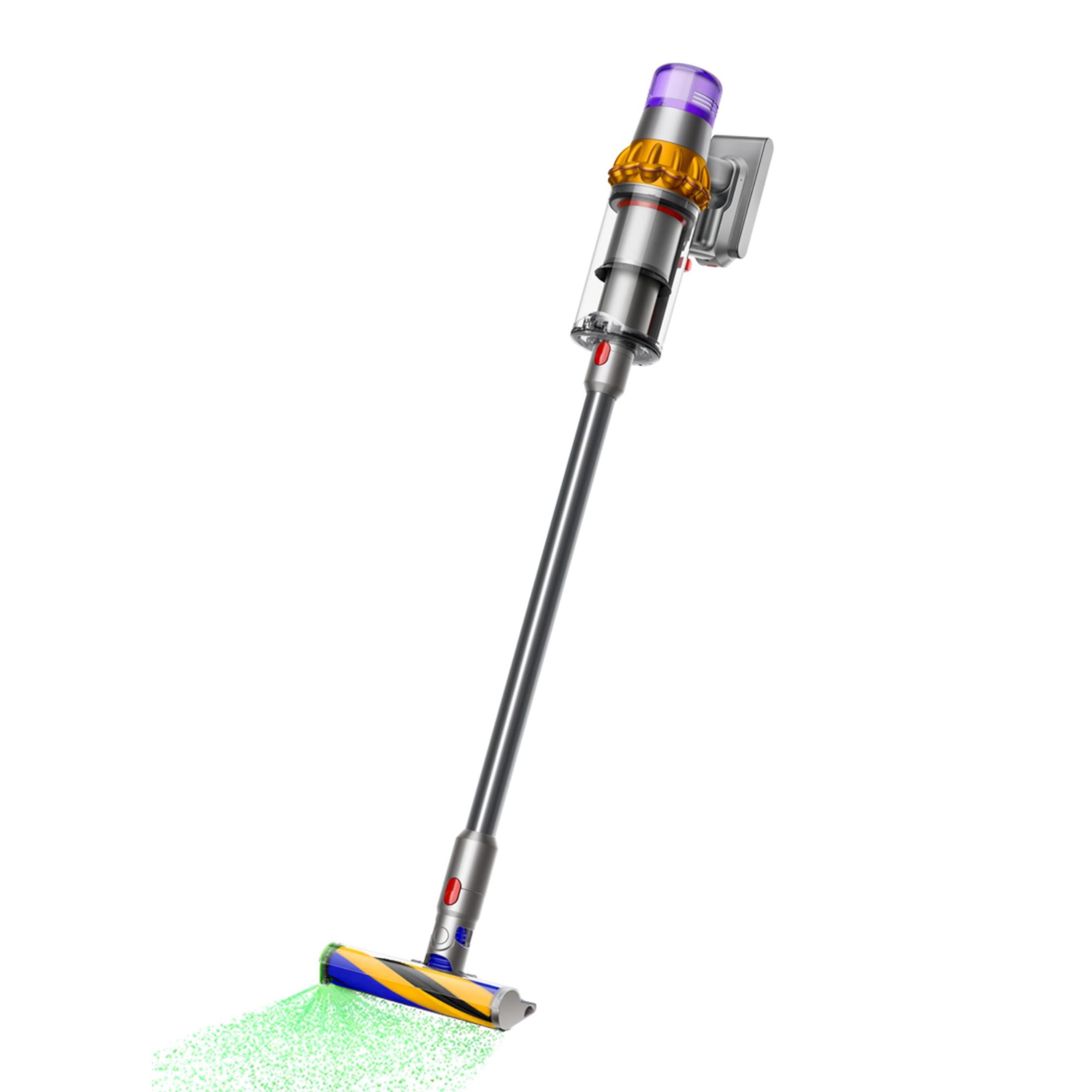
We're big fans of Dyson at Homes & Gardens. As a result of the 200+ hours I've spent testing vacuums, the two I now keep in my own home are Dysons. I love how effortlessly they vacuum even the trickiest of messes, and never wrap with hair.
But how well do Dyson's older vacuums hold up, years after their release? The Dyson V8 was once one of our favorites, until newer releases knocked it down in comparison. Now, the V8 is much cheaper than some of the latest and best Dyson vacuums, but it's still a popular choice because of the signature Dyson-level performance.
Here, I compare the V8 to Dyson's newer models to unpack whether this entry-level model is well-suited to your home, or if you need one of the fancier, more costly alternatives.
Is the Dyson V8 still worth buying in 2025?

In short, yes, but it's now one of the more basic 'entry-level' vacuums Dyson sells. View the V8 as an affordable but back-to-basics Dyson model. It has no smart features, but delivers consistently strong suction across all floor types and has an easy-to-use design. Read more in our full Dyson V8 review.
The Dyson V8 was released back in 2016, and in that time we've seen the Dyson product range go past V10, V11 and V15 all the way to the Dyson Gen5detect.
Each model brings more powerful motors, stronger suction, longer runtimes and more advanced smart features. With each new Dyson vacuum release, the older V8 has become cheaper in comparison.
However, the V8 still carries most of what we love about Dyson: it's lightweight and easy to use, its suction is strong on all surface types, and the floorhead avoids hair wrap at all costs. It also holds up well against newer releases and is still a stronger choice than many of the best Dyson alternatives that we love.
For deeper understanding of the range of Dyson vacuums, it's good to know that the latest and best cordless vacuums in Dyson's range separate broadly into two types: detect and non-detect.
The detect models (those with 'Detect' in the name) have smart features such as a green laser that illuminates hidden dust, floor sensors to automatically adjust your suction power when needed, and a particle counter so that you know when your floors are really clean.
I own two of these models, which I use at home: the Dyson V12 Detect Slim and the Dyson V15 Detect, and they remain two of the best vacuum cleaners we've ever tested.
In terms of features, both are leagues beyond the V8, but that doesn't mean the V8 is now a bad vacuum cleaner.

The thing with old vacuums is that, when they were the most advanced model at the time of release, we rarely felt like features were missing or our floors weren't clean enough. It's only now that technology has developed that we look back and think they're weak in comparison.
However, the V8 performed well during our testing. On test, Jaclyn Turner had a full dustbin 'within minutes' when vacuuming carpet, highlighting its credentials as one of the best vacuums for carpet if you're on a budget.
Because of the V8 vacuum's size, Jaclyn had to empty it regularly, but she didn't mind as she could see how much cleaner her floors were.
In quantifiable terms, the V8 has 115 air watts of suction power (more on why air watts is the most accurate unit for suction power in my vacuum jargon buster). You can compare this to the V11's 185 air watts, the V12 Detect Slim's 150 air watts, and the V15 Detect's 240 air watts to see where the V8 sits among them.
Higher air watts is important for homes with kids, pets or carpet flooring, as you need more suction to deal with busier messes and to pull hair out of carpet. If you're on the hunt for the best vacuum for pet hair, the V8 could be a great choice if your home has mostly hard floors. But if your home is heavily carpeted, I'd recommend a minimum 150 air watts, so look at stepping-up to the V11 or V12 Detect Slim.
Its 40-minute runtime is also shorter than the standard 60 minutes that you'll find in every model from the V11 upwards. Its 0.14gal dustbin is also smaller than the 0.2gal dustbins of the V15 and V11, but larger than the V12 Detect Slim's tiny 0.09gal dustbin.
It won't be the best choice for anybody with a large home, but the lower runtime and small dustbin does make the Dyson V8 one of the best lightweight vacuums. The thinner design and smaller battery makes it super agile and easy to use, especially for anybody with limited mobility.
My verdict
The bottom line is that the Dyson V8 is excellent at vacuuming mess from any surface, but when you compare it to Dyson's latest vacuums, it's weaker. It has less suction power, a shorter runtime, a smaller dustbin, and doesn't have any of the smart features of Dyson's laser vacuums.
But the advanced features of Dyson's newer vacuums aren't essential, they're just an improvement. If your home isn't too large or messy, the V8 should be more than enough cleaning power. It also doesn't hurt that it's so lightweight and takes up less space when storing your vacuum.
You can buy the Dyson V8 for just $349.99 at Dyson.
Newer Dysons

If you're prepared to pay a little extra, newer Dyson vacuums boast stronger suction and improved features compared to the V8.
The most noteworthy is the intelligent features in the Detect vacuums so that you can develop a more intimate and detailed understanding of your home's cleanliness.
I use both the V12 Detect Slim and V15 Detect in my own home, and it's incredible how much dust and debris the green laser reveals. The floor can look spotless until you shine the laser on it.
And when it comes to suction power, the V8 is impressive, sure, but the V15 Detect's almost-unbelievable 240 air watts is similar to what you'd expect in the best upright vacuums.
The trade-off when buying a cordless vacuum is the loss of suction compared to the best corded vacuums, so the V15 Detect generating that much airflow is what makes it world-class.
And when looking at the smaller details, having more runtime and a larger dustbin does make your cleaning more natural, minimizing how often you need to pause to either charge up the vacuum or empty it.
If you can afford it, I'd personally recommend going for the more advanced models, which can cost up to $1049.99. But if not, the V8 is still a worthwhile, albeit basic Dyson.

The V11 is the best non-detect Dyson vacuum. Its suction power is even higher than the V12 Detect Slim's at an impressive 185 air watts, which almost makes it as powerful as an upright vacuum.

I've used the V12 Detect Slim for over a year in my home and I couldn't recommend it enough. For such a lightweight, nimble vacuum, it's incredibly powerful.
Read more in my full Dyson V12 Detect Slim review.

When you compare the Dyson V15 Detect vs Dyson V12 Detect Slim, as somebody who owns both, the V15 Detect is noticeably the better choice. While the V12 will occasionally leave mess behind, the V15 Detect handles everything effortlessly, and my floors have never looked cleaner since using it.
Read more in my full Dyson V15 Detect review.
Even at the affordable end, Dyson's market-leading tech is expensive. That's why we're big fans of the best Shark vacuums, with their similar features and better prices.







